#organic agriculture
Explore tagged Tumblr posts
Text


récoltes de soya et de maïs bio, ferme bonneterre, saint-paul-de-joliette
16 notes
·
View notes
Text
#organic agriculture#aquaponics#aquaculture#symbiotic relationship#love#permaculture#education#entrepreneur#small business#join us#support communities#youth of america#farm
22 notes
·
View notes
Text
“Organic food is so bougie and expensive” okay fair point but, in a perfect world, it wouldn’t be. In a perfect world organic, regenerative, seasonal, locally-grown food would be the cheapest and most accessible kind. We would combine age old indigenous knowledge of how to garden and herd in a way that works with the earth with modern scientific knowledge to make a system that feeds everyone, heals Gaia, connects us with our natural selves.
This kind of food system isn’t hippie and elitist by nature. It had become that way because industrial agriculture is like a parasite that entices us with promises of infinite growth for almost no cost, and then proceeds to take over everything, killing local economies and the earth in the process. Everyone else- everyone growing food the right way- is forced to shrink and raise their prices in the process.
Yes, it’s unfortunate that only those of a certain income bracket can by organic food. It’s unfortunate that the movement has become so elitist and snobby. But it’s also important to look at the picture. The enemy is industrial agriculture, the victims are everyone else.
11 notes
·
View notes
Text
The Future of Sustainable Agriculture: Innovations and Best Practices
Agriculture is one of the largest industries in the world, providing food for billions of people. However, the current state of agriculture has a significant impact on the environment, from soil degradation to water pollution and loss of biodiversity. It is crucial for the future of our planet that we transition towards sustainable agriculture practices. we will explore the latest innovations…
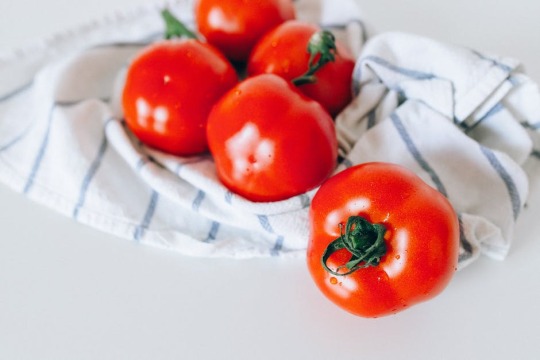
View On WordPress
#agroecology#agroforestry#best practices#biodiversity#biological control#climate change#conservation agriculture#crop rotation#ecosystem services#food production#government policies#habitat manipulation#individual action#integrated pest management#intercropping#land use#natural methods#organic agriculture#precision agriculture#regenerative agriculture#resistant crops#soil health#sustainable agriculture#sustainable future.#technology#vertical farming
2 notes
·
View notes
Text
How can agriculture help mitigate climate change?
As the threats of climate change have become increasingly evident, it’s clear that mitigation efforts must span all sectors of the economy and society. Agriculture is uniquely positioned not only to reduce its own emissions but also to sequester carbon from the atmosphere through various regenerative practices. Several companies are more aware these days and are investing in initiatives for organic agriculture in the UAE. Let’s explore some of the keyways sustainable agriculture can help address the climate crisis.
Soil carbon storage
Healthy soil contains vast stores of carbon, but traditional tilling loses this organic matter over time. No-till and low-till methods employed by organic agriculture leave crop residues and roots in place to feed soil microbes. This builds soil carbon levels, capturing atmospheric CO2. Another approach is planting cover crops during fallow periods to add carbon back to fields.
Methane reduction
Rice paddies and livestock agriculture produce significant methane, a potent greenhouse gas. Adjusting water levels in rice and improving manure management, such as through biogas capture systems, can cut these emissions. Alternative feeds for cows that modify rumen function also show promise in methane mitigation.
Improved grazing practices
Rotational or mob grazing, which moves cattle frequently between paddocks, builds soil carbon better than stationary feedlots. It also prevents overgrazing while encouraging a diversity of grass and plants with deeper root systems to sequester carbon underground. Regenerative ranching can even convert degraded land into net carbon sinks.
More trees on farms
Agroforestry interplants crop with trees to take advantage of their symbiotic relationship. Besides capturing carbon in biomass, tree root exudates feed microbes that store carbon in the subsoil. Alley cropping, silvopasture, and riparian buffer planting create carbon-fixing habitats while maintaining agricultural production. Perennial crops also store more carbon below ground than annually.
Reduced food waste
An estimated 30% of global food production never reaches human stomachs due to spoilage or overbuying. This wasted food represents unnecessary emissions from farming inputs and transportation. Improving harvest efficiencies, storage technologies, and conscious consumer choices around portion sizes and sell-by dates could significantly curb agriculture's carbon footprint.
Sustainability-focused practices, involving organic agriculture in Dubai adopted by farmers, hold great potential for drawing down atmospheric CO2. Mitigation strategies must span emissions reductions and carbon sequestration if we hope to make meaningful progress on climate change through the land use sector.
The Ekthaar sustainable farming solutions, as part of Bin Dasmal Group in UAE, offer fresh produce by using only a small percentage of soil and water. By reusing construction waste materials, the company is also able to save 25–30% of the total construction cost, making it a financially viable solution to the region's food security problems.
0 notes
Text
100 Top Sustainable Agriculture Companies - Organic Agriculture Directories
Organic agriculture techniques include crop rotation, green manure, composting, and biological pest control. These methods help maintain soil fertility, reduce erosion, and Sustainable agriculture minimize the need for chemical inputs. Sustainable agriculture practices reduce the environmental impact of farming by minimizing soil erosion, conserving water, reducing greenhouse gas emissions, and enhancing biodiversity. These practices help protect natural resources and ensure long-term agricultural productivity.
#sustainable agriculture#organic agriculture#sustainable agriculture and farming#biological agriculture#benefits of organic agriculture#organic agriculture techniques#agricultural organizations
0 notes
Text
Opt for organic sustainable food choices.
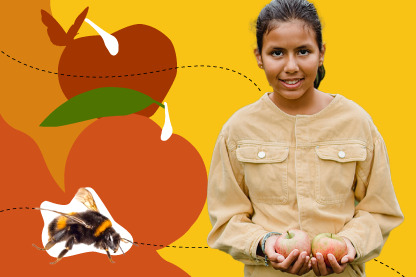
“Bee engaged with Youth”. World Bee Day 2024.
Organic Ingredients are defined materials originating from crops derived from organic agriculture. The USDA defines Organic Agriculture as :" Organic agriculture is an ecological production management system that promotes and enhances biodiversity, biological cycles and soil biological activity. It is based on minimal use of off-farm inputs and on management practices that restore, maintain and enhance ecological harmony." It is a farming system based following the cyclical patterns of nature to produce crops from balanced living soils. It puts a strong emphasis on the protection on the environment, and by practice, bans the use of Pesticides, harmful chemicals and genetically modified crops. It relies heavily on biodiversity promoting a diverse range of plants, insects and animals, with each piece, playing a specific beneficial role to the ecosystem. This is especially true for the bees, as they play a crucial role in pollination, which enables fertilization and reproduction of plants. Without the input of bees, the food and agricultural output is decreased by 33%, making only 2/3 of the food production possible. As ecology defines, sustainability as how biological systems remain diverse and productive, It can be presumed that in fact bees are actually essential to global food sustainability. Their loss is considered a threat to global food supplies and sustainability.
The current disappearance of bees, a peculiar phenomenon labeled called Colony Collapse Disorder has perplexed scientists and Beekeepers now for the past decade. However, a new study from Harvard University, published in the June edition of the Bulletin of Insectology has recently found that, neonicotinoids, a class of insecticides and pesticides allowed in agriculture, are killing bees at an exponential rate. The study finds the neonicotinoids to be the direct cause of the colony collapse disorder and the disappearance of the bees.
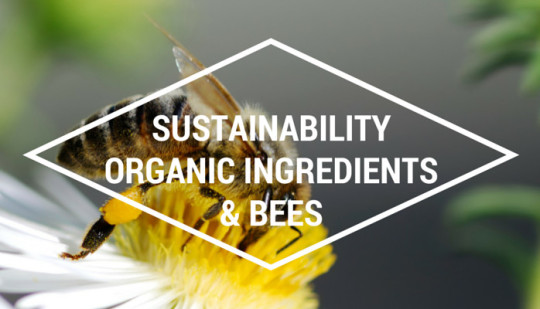
The study also found that the control bees, which were not exposed to the pesticides were not affected adversely and did not vanish from hives at the end of the study. It is then concluded that the focus on natural ecosystems and native species, as well as the lack of pesticides used in organic farming, is therefore beneficial to bees. By supporting biodiversity and balanced ecosystems for the bees, organic agriculture may just be helping conserve the livelihood of bees and allow for their continuous participation in our food systems. This highlights the growing importance of producing and consuming crops issued from organic agriculture to maintain bees ecosystems and food sustainability for humans. As chemists and brands , a quintessential part of the food and consumer product lifecycle, select raw materials to include in product development efforts, it will become increasingly important to consider organic options as a pillar for overall and global sustainability efforts. It seems that we are all related in our global ecosystem and various choices made have an ecological impact on the planet and our collective livelihood. Perhaps now is the time to consider adding additional criteria to the selection of product raw materials beyond pricing and quality.
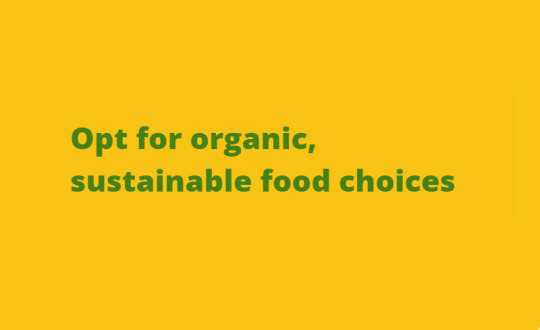
#bees#young beekeepers#beekeeping#bee engaged with youth#world bee day#20 may#Bulletin of Insectology#organic agriculture#Beneficial to bees#sustainable beekeeping#sustainability#neonicotinoids#harvard university#bees ecosystems#ecological impact
0 notes
Text
SPJ Group: Cultivating a Sustainable Future Through Organic Agriculture
SPJ Group is committed to environmental responsibility and fosters a healthier world through organic agriculture. We cultivate a range of eco-friendly farm products using sustainable practices, creating jobs and supporting communities. We have set up a 15-acre poly house in Alwar, Rajasthan for organic farming and sustainable farming practices. At SPJ, our commitment to the environment led us into agriculture.
0 notes
Text
Organic produce is becoming popular among the majority as people are becoming mindful of what they eat and how it affects their overall health. Organic agriculture uses practices that also ensure that no harm is done to the planet.
0 notes
Text
Costa Rica, Day 13: A country drive to a coffee plantation and almuerzo con comida typica
We got up early to take an hour and a half drive to a coffee plantation. Our hotel hostess provided fresh fruit and other things for breakfast, knowing we would have to leave before the hotel served breakfast. Our driver was a cheerful gentleman named Roger, who pronounced his name in the Anglo fashion. We asked about it, never having met a Roger in a Spanish-speaking country. He then pronounced…

View On WordPress
#casada#coffee#coffee growing#Costa Rica#Fire in the Ocean#K.D. Keenan#la comida typica#Lords of the Night#mesoamerican#Obsidian Mirror#organic agriculture#palm wine#sodas#Tamarindo#travel#Villareal
0 notes
Text
WHAT ORGANIC FOOD HAVE TO OFFER – 10 AMAZING BENEFITS OF ORGANIC PULSES, VEGETABLES, AND FRUITS
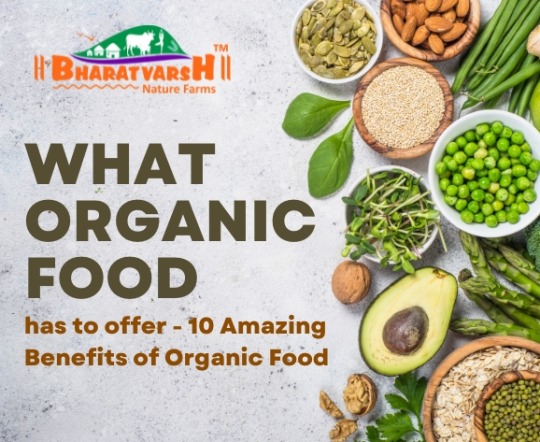
Organic food has become increasingly popular over the past few years. There are several benefits of consuming chemical-free food that is grown without the use of fertilizers and pesticides. They can promote overall better health. In today’s article, we will explore 10 amazing benefits of organic pulses, vegetables, and fruits.
Good health begins with healthy choices. Organic food is one of the ways to ensure the quality of what we consume, getting higher nutrients and richer flavors while reducing the risk of illnesses. Whether you want to lose some extra pounds, control diabetes, or build strong immunity, Organic food offers everything you need.
10 Amazing Benefits of Organic Pulses, Vegetables, and Fruits
1. Higher Nutrients
Organic fruits and vegetables are known to have higher nutrients than conventionally grown produce, as they are grown in nutrient-dense soils without synthetic fertilizers. It is one of the main reasons why people choose organic products. The pulses, vegetables, and fruits are grown in soil that is naturally rich in nutrients and minerals, without the use of fertilizers. It involves using cow dung and other methods to prepare the soil before cropping which acts as a natural fertilizer.
2. Lower Risk of Exposure to Pesticides
It is not a secret that pesticides and herbicides are widely used in conventional farming to control pests and weeds. However, these chemicals can be harmful to human health. Long-term exposure to them has been linked to multiple health issues, including cancer, reproductive problems and more.
3. Richer Flavor
Another benefit of choosing organic fruits and vegetables is their richer flavor and texture. Because they are grown using natural farming methods, they usually have good flavors and textures compared to conventionally produced foods. This is due to the different kinds of nutrients and minerals found in organic soil, as well as the lack of synthetic chemicals and fertilizers.
4. Lower Risk of Antibiotic-Resistant Bacteria
Antibiotic-resistant bacteria are a growing concern in modern healthcare. Overusing antibiotics in livestock farming has been linked to the cause of antibiotic-resistant bacteria. Organic farming practices don’t include the use of antibiotics in animals, which can help reduce the risk of antibiotic-resistant bacteria and promote their better health.
5. Improved Digestion
One can find the difference between organic and non-organic food by checking their freshness. Unlike others, they are often fresher and richer in fiber, promoting better digestion and reducing the risk of digestive issues such as constipation and bloating. The fiber found in non-GMO products can also promote the growth of healthy gut bacteria which is important for overall digestive health.
Read More: https://bharatvarshnaturefarms.com/what-organic-food-have-to-offer-10-amazing-benefits-of-organic-pulses-vegetables-and-fruits/
#Benefits of Organic farming#Benefits of Organic foods#Best Organic Cereals and Pulses#Best Organic Farming Services in Nagpur#Best organic farms in Nagpur#Best Organic Pulses in Nagpur#Best supplier for Organic Fruits#Best supplier for Organic Vegetables#Bharatvarsh Nature Farms#Buy Organic Fruits Online#Buy Organic Pulses online#Buy Organic Vegetables in Nagpur#Organic Agriculture#Organic Farming in Nagpur#Organic Food#organic fruits#Organic Pulses#Organic Vegetables
1 note
·
View note
Text
#creative inspiration#education#inspiration#love#science#entrepreneur#organic agriculture#organic farming#self love#herbal remedies#nature#hummingbird#flowers#beauty#beautiful#photography#my farm#homegrown#homesteading#life#nurture#growth#understanding#compassion#empathy#good morning#i love you#i love him#apple orchard#creature
3 notes
·
View notes
Text
0 notes
Text
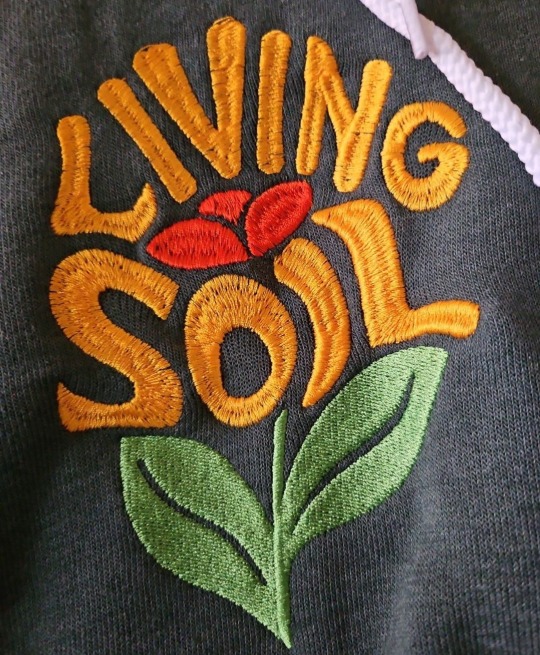

🌱✨️ "Living Soil" Embroidered Crewnecks & Hoodies ✨️🌱
Stay cozy while supporting soil health and sustainable farming 💚💛❤️
🌟 when you sign up for email offers and updates on our website, you get a chance to win up to 50% OFF your order!
🌟 FREE SHIPPING for orders over $50!!!
#soil health#soil science#soil#permaculture#environmental education#enviroment art#regenerative agriculture#regenerative farming#agriculture#sustainable living#sustainable farming#sustainability#organic life#organic matter#organic lifestyle#organic farming#organic#compost lifestyle#composting#compost#vermicompost#biodiversity#ecomindset#conservation#microbes#plant life#plant lover#street style#hippie#stoner society
536 notes
·
View notes
Text
Bacolod Farmers Help Each Other to Succeed

View On WordPress
0 notes